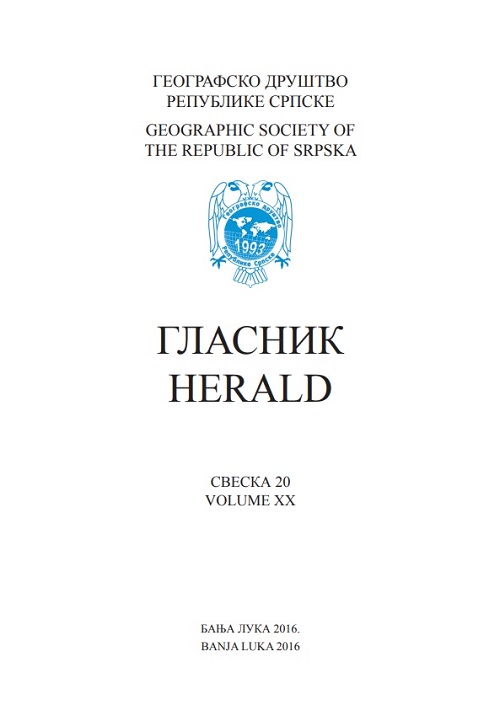HORIZONS OF RESEARCH IN GEOGRAPHY OF THE WORLD ECONOMY
DOI:
https://doi.org/10.7251/HER2016003AKAbstract
The advent of "world economic transition" and the formation of a multipolar world is closely linked, according to experts, with loss of globalization advances, which strengthens regionalism, increases diversification and fragmentation of the modern world, creating risks and threats to the world development. In this light studying the spatial organization of the global economy becomes more important, and at the same time that complicates the choice of priorities in the research activities of the Department of geography of the world economy, Faculty of Geography, Moscow State Lomonosov University in 2016-20, requiring a new research “ideology”. The article summarizes some ideas expressed by the department staff. It specifies that concept of territorial division of labor, as well as the defined set of key actors in the world economy and common assumptions regarding their contributions to its development needs a significant revision. The above firstly concerns giant developing countries, in particular rapidly growing China – a kind of locomotive entraining other developing states. Further, the impact of multinationals on the overall architecture and the territorial organization of the global economy becomes more and more tangible. This phenomenon requires the creation of a new scientific area of concern – the corporate geography as a tool to thoroughly investigate the transnational division of labor. Changes in the balance of acting forces are closely related to changes in industry composition and spatial organization of the global economy. The article raises the issues of development of such processes as tertiarization of the economy, reindustrialization and neoindustrialization, the latter being understood as an evolutionary transition to a knowledge-intensive, high-tech, mass labor-replacing and environmentally efficient industrial production. Basing on preliminary research from the standpoint of a relatively new methodological approach – formation of value chains – the vector of "geographical transition" " in their creation from developed to developing countries was designated. This means increasing complexity of the territorial structure of the world economy and an increase in the importance of semi-periphery. A spatial projection of globalization processes in the form of emerging “archipelago of cities”, which consolidates the international network of TNCs as the supporting node frame of the global economy requires close attention and analysis. The need of comprehending the study scope in the field of geography of the world economy in medium Atlas Information Systems (AIS), which in terms of functionality belong to the upper class of electronic atlases, is noted.
